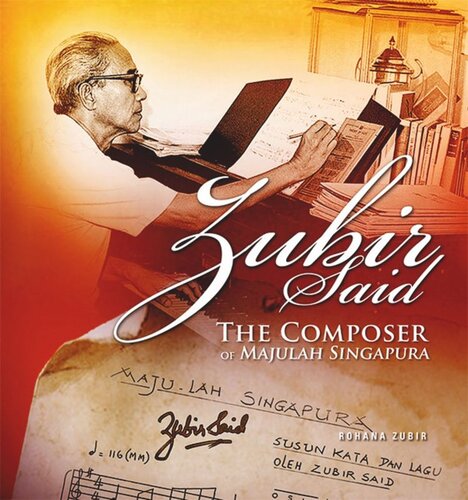

Most ebook files are in PDF format, so you can easily read them using various software such as Foxit Reader or directly on the Google Chrome browser.
Some ebook files are released by publishers in other formats such as .awz, .mobi, .epub, .fb2, etc. You may need to install specific software to read these formats on mobile/PC, such as Calibre.
Please read the tutorial at this link: https://ebookbell.com/faq
We offer FREE conversion to the popular formats you request; however, this may take some time. Therefore, right after payment, please email us, and we will try to provide the service as quickly as possible.
For some exceptional file formats or broken links (if any), please refrain from opening any disputes. Instead, email us first, and we will try to assist within a maximum of 6 hours.
EbookBell Team

4.0
96 reviewsZubir Said is best known as the composer of Majulah Singapura, the national anthem of Singapore; Semoga Bahagia, the Singapore school anthem; and Melayu Raya. Born into a humble and religious family in Sumatra where music was considered haram, at 21 he set out to seek his fortune in Singapore, attracted initially by the glittering lights and the availability of butter and kopi susu, but soon by the opportunities it offered him to pursue his dreams. Armed with his first musical instrument, a bamboo flute he had carved himself, and a basic knowledge of music number notations, Zubir taught himself to read, write and compose music. Despite the many challenges he faced, he became a musical icon of the 1950s and 1960s on both sides of the Straits of Johor, at a time when Independence was the clarion call and nationalist fervour was running high. The nationalist sentiments nurtured in Zubir's youth during the Dutch and Japanese occupations of Indonesia were channelled into his numerous compositions of national songs. Highly acclaimed at the time, some of the compositions later became a source of discontent and a platform for political debate. During a period in the wilderness, he immersed himself in the world of films, composing songs and background or "mood" music, and pioneering voice dubbing. The advent of recorded music in films, however, led to a third career. During the lean post-war years, he had mastered the art of photography and became a busy freelance photographer. He developed a unique method of teaching music, the SOLMISASI system of number notations, to nurture talent and a love of music among young children. This book, which includes numerous photographs, documents, musical scores and articles, as well as a CD of a selection of Zubir Said's compositions, vividly reveals one of Singapore's leading composers as family man, friend, composer and mentor. It also accords Zubir Said his rightful place in the history of Singapore.